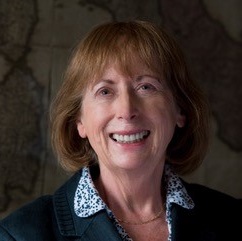By Rachel Griffiths, Consultant in the Mental Capacity Act and Human Rights Law. |
In spring, our lives overtaken by the pandemic, we all found our inner war time spirit in Vera Lynn songs, and comforted by knowing we were all in this together. We were appalled at the human costs of separating people from their relatives and friends. Amid PPE glitches and problems with testing we struggled, day by day, to get the balance right between safety – for those we serve, for our staff, for ourselves and our families – and enabling these human contacts and essential human rights that make life worth living.
By Rachel Griffiths, Consultant in the Mental Capacity Act and Human Rights Law
In spring, our lives overtaken by the pandemic, we all found our inner war time spirit in Vera Lynn songs, and comforted by knowing we were all in this together. We were appalled at the human costs of separating people from their relatives and friends. Amid PPE glitches and problems with testing we struggled, day by day, to get the balance right between safety – for those we serve, for our staff, for ourselves and our families – and enabling these human contacts and essential human rights that make life worth living.
Balancing Act
Care providers – and their residents – are victims of competing pressures. It feels obvious that the simplest way to keep a care home safe from Covid-19 is to pull up the drawbridge and keep everyone out except staff and essential health professionals. And this certainly worked well in the short term, during what we must perhaps learn to call ‘the first lockdown’. Infections in care homes were hugely reduced, and residents, relatives and staff all felt a real solidarity in sharing the pain.
The costs, though, have been very high. We hear increasingly of distressed, confused residents, feeling isolated, and even abandoned by those who love them – who, in their turn, are increasingly frantic to renew visits, to give again the comfort that can only be provided within a loving relationship.
Our balancing act is to recognise that these grave restrictions on contact cannot be allowed to become the ‘new normal’, and to find ways to allow personal visitors in, safely, when local conditions allow. Many relatives of residents have been voluntarily self-isolating, sometimes because they too are vulnerable, but also in the hope of being identified as safe visitors or even ‘honorary staff’. Their homes are coronavirus-free, by choice: contact with them brings fewer risks than with our own staff.
How can we rebalance safety and visiting?
Guidance is essential. Unfortunately, the latest Adult Social Care Winter Plan is dangerously inconsistent. It highlights the importance of relationships to people who use residential care services, and encourages us to make person-centred, individual risk assessments, yet repeatedly seems to expect providers to be quick to ban visits, and slow to allow them back.
As we move towards more testing and quicker results, and hopefully a vaccine prioritised for the most vulnerable, we will feel braver. In readiness for that, remember how we promised each other in March that this level of restriction would never be allowed to become the ‘new normal’ and look for ways to enable loving contacts.
After all, as a wise judge said, ‘What use is it making people safe, if by doing so you’re making them utterly miserable?’
Rachel Griffiths MBE
Rachel is a consultant in the Mental Capacity Act and Human Rights Law, as they apply in health and social care practice. A registered social worker and former AMHP, she has been involved in implementing the MCA since its inception in 2007.
Until April 2017, she was the Mental Capacity Act Lead at the Care Quality Commission.
She is part of the leadership group of the National Mental Capacity Forum and works closely with Care England and with Health Education England on guidance for medical professionals on mental capacity. She is part of the DHSC LPS working groups on the code of practice and workforce implementation. She is part of a Nuffield Institute of Bioethics working group on the future of aging.
Rachel was awarded an MBE in the New Year Honours List in 2017 for services to vulnerable people.




Comments
Login/Register to leave a comment